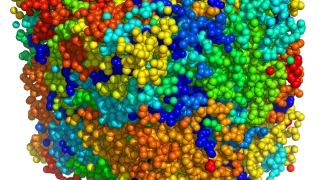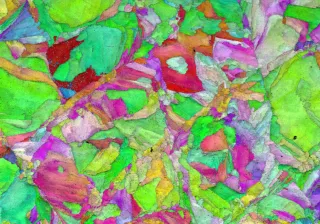Due to resource scarcity and intense pressure to become carbon neutral, companies in industries like textile, packaging, and construction are looking for alternative materials to replace unsustainable ones and improve the performance of their products through new, improved designs.
VTT Technical Research Centre of Finland has expanded the application of its Integrated Computational Materials Engineering (ICME) toolbox ProperTune® beyond hard materials like metals to now model and design soft materials like wood, polymers and plastics. This allows companies to cut down product development time by at least 50%, decrease cost elements of product development, reduce environmentally harmful materials and design entirely new materials that perform better.
This expanded use of ICME makes it fast and economically viable for the replacement of an increased number of unsustainable materials while providing improved material performance.
“Developing products virtually is happening now, it’s not science fiction anymore. Sourcing materials is becoming increasingly expensive or difficult. The battery industry, for instance, uses huge amounts of ground metals which will not be available indefinitely, and there is a burning need for bio-based alternatives to lithium. As products are improved and new ones are created for different industries, we need to make each resource count,” says Antti Puisto, Research Team Leader at VTT.
ProperTune® is a collection of tools that combines multiscale physics-based modelling and AI with a data-driven approach to create microstructurally accurate materials and load in realistic conditions. ProperTune® provides a highly in-depth analysis of the customer’s product and models how different environmental elements and stressors affect the product.
Working in a fully digital environment, finding more preferable – and better performing alternatives for undesirable ingredients – is dramatically faster compared to the traditional trial-and-error methodology. In addition, the durability along with other key performance parameters of the new material can also be verified in the virtual environment.
“By taking product development and testing into the virtual world, we are able to create better products faster and more cost-efficiently than ever before,” explains Puisto.
Microbes are one of the most exciting prospects for soft materials as they are, essentially, an infinite source of materials.
“Paper cups have a barrier coating to help keep the liquid from immediately destroying the cup. Usually, this barrier is made of petrochemical polymers – a kind of plastic material. That could be replaced with sustainable alternative polymers produced by microbes, cutting out a significant amount of fossil-based, unsustainable barrier material. The end result would be paper cups that are infinitely circular,” elaborates Puisto.
Virtual material analysis and development holds a lot of promise for the construction industry as well. Insulation materials in the walls of buildings are usually not made of sustainable materials. Instead, they tend to be made of petrochemical-based polymeric materials – plastics – or, in some cases, mineral wool. Both materials end up in landfills at the end of life.
“How do we create an alternative insulation material that doesn’t rot between the walls – but also disappears without leaving a trace or harming the environment after their life cycle is over? You’d need to design a material that lasts for 50 years but is also biodegradable. These are the kinds of inspiring challenges that we want to tackle”, says Puisto.
ProperTune® has already been used by global leading companies, such as Caterpillar, Kone, and Wärtsilä, to improve the material performance of their products.
VTT is already working with customers looking for alternatives for their soft materials.
“We are already working with the first bleeding edge projects with customers to discover and develop alternatives for their soft materials. Overall, companies developing new, better materials – whatever their industry – are the trailblazers creating the world of the future,” Puisto concludes
For additional information:
Media kit with pictures and company deck
Antti Puisto, Research Team Leader
[email protected]
+358 50 560 8566





